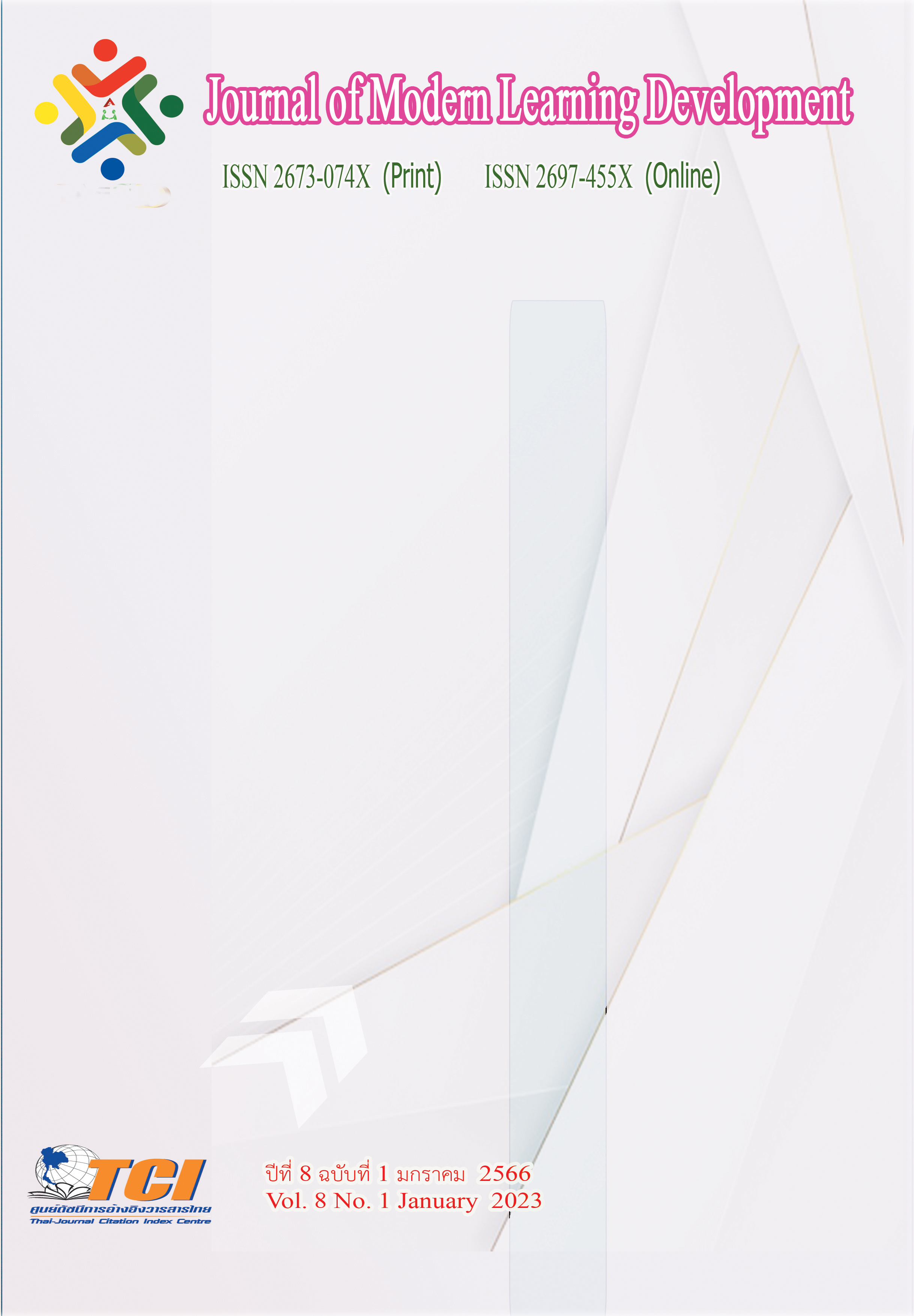The integrated Buddhism Logistics Business Administration in Nakonratchasima Province
Main Article Content
Abstract
This research aims to 1. To study the condition of logistics business management problems in Nakhon Ratchasima Province 2. To study the application of Buddhist principles in logistics business management in Nakhon Ratchasima Province. 3. To propose integrated Buddhist logistics business management in Nakhon Ratchasima Province. It is a qualitative research. The research tools were group discussion and in-depth interviews. Key informants, 33 photos/person Data were analyzed by descriptive methods. The results showed that
1. Conditions of problems in logistics business administration in Nakhon Ratchasima Province are as follows: 1.) Human Resources the employee turnover rate is high. Employees often make mistakes assignments do not match knowledge and abilities. and employees lacking knowledge in information technology. 2. Resources in the form of capital The company has a lot of debt. Covid-19 situation lack of financial liquidity unstable transportation cost The price of fuel has increased. And truck maintenance costs are more expensive. 3. material matters The cost of materials is more expensive. Delivery of goods and services is delayed. damaged material and a shortage of drivers 4. Knowledge of management Lack of planning in the situation of COVID-19 The assignments do not match the knowledge and abilities. Personnel management is biased. and lack of professional management 5. Machinery and equipment Spare parts and materials are more expensive. Lack of modern technology systems. 6. In marketing, there are more competitors. Short-term employment contract, the company is reluctant to make an investment decision. 7. Morale and morale the employee turnover rate is high. 8. Time management executives want high quality but low prices. 2. The use of buddhist principles in the management of logistics business in Nakhon Ratchasima Province as follows: 1. Human resource, diligent, honest, economical, disciplined, compassionate 2.) Resources in the form of capital Borrow money to invest in the company's potential. and save money 3. In terms of materials, things are the most economical, highly useful. 4. Knowledge of management equality and fairness 5. Machinery and equipment use with caution, know how to store, know how to use and repair. 6. Marketing, not doing illegal business and do not take advantage of customers responsible 7.) morale and morale, take care and provide welfare ๘) Time management, good service, kindness, speedy, impressed customers.
1. Propose integrated Buddhist logistics business management in Nakhon Ratchasima Province 1).Human resources, namely the Trisikkha 3, Sangahavattha 4, Brahmawihan 4, and Saranee Dharma 6 2) Resources in the form of capital, namely Dhammakattasangvatani Dhamma 4 and Noble Sap 7 ๓) Materials and things such as Kulchiratthiti Dhamma 4 4) Knowledge of management, i.e. power 4 5) Machinery and equipment such as Kulchiratthitham 4,6) Marketing: Michawanitcha 5 7) Morale and Encouragement: 6 Saranee Dharma and 8) Time management, namely Sappurisadhamma 7
Article Details
References
กมล ฉายาวัฒนะ. (2554). บริหารตนและงานด้วยวิธีการของพระพุทธเจ้า. (ฉบับปรับปรุง). กรุงเทพมหานคร: พิมพ์ดีการพิมพ์ จำกัด.
ปัญญา ใช้บางยาง และคณะ. (2555). ธรรมาธิบายหลักธรรมในพระไตรปิฎก. (พิมพ์ครั้งที่ 2). กรุงเทพมหานคร: ธรรมสภา สถาบันบันลือธรรม.
มหาจุฬาลงกรณราชวิทยาลัย. (2539). พระไตรปิฎกภาษาไทยฉบับมหาจุฬาลงกรณราชวิทยาลัย: พระสุตตันตปิฎก ทีฆนิกาย ปาฏิกวรรค เล่มที่ 11. กรุงเทพมหานคร: โรงพิมพ์มหาจุฬาลงกรณราชวิทยาลัย.


